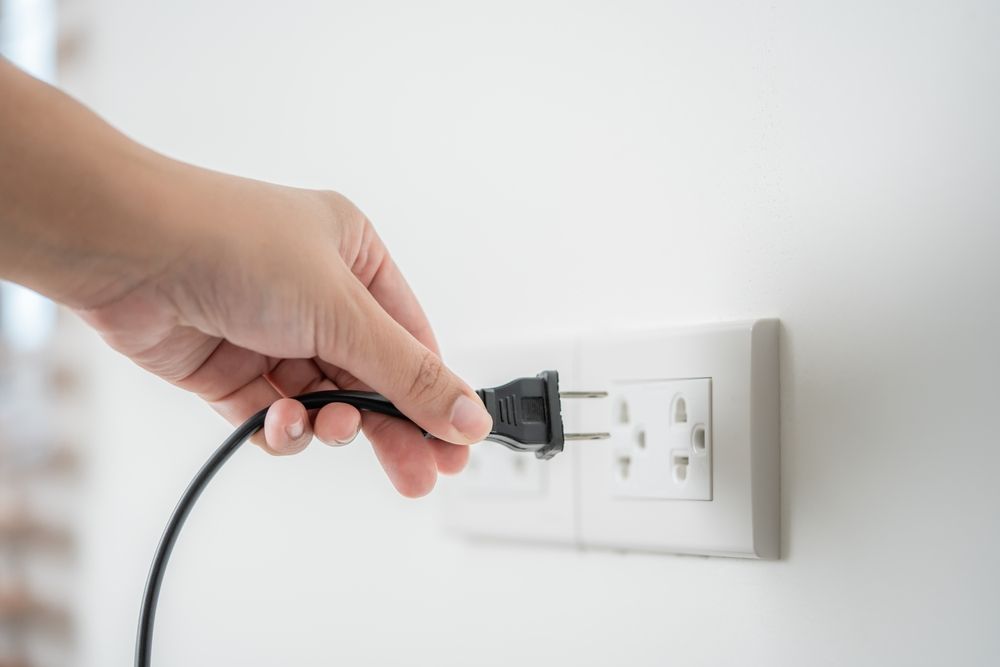Electricity powers nearly every part of our daily lives—from lighting and cooking to entertainment and comfort. But with rising energy costs, many homeowners are looking for ways to cut back without sacrificing comfort or convenience. The good news? Small changes can add up to big savings.
You don’t need to invest in expensive technology or remodel your home. With a few simple adjustments to your routine and home setup, you can save energy and reduce your monthly utility bill. Here’s how to get started.
Turn Off Lights When Not in Use
It may sound basic, but one of the easiest ways to save electricity is by simply turning off lights when you leave a room.
Even better:
-
Use natural light during the day
-
Install motion sensors or timers
-
Switch to energy-efficient LED bulbs
Lighting accounts for about 10–15% of home electricity use. Being mindful can make a noticeable difference over time.
Unplug Devices You’re Not Using
Electronics continue to draw power even when turned off—this is known as phantom energy or vampire power.
Devices to unplug or connect to a power strip:
-
Chargers (phone, laptop, tablet)
-
Coffee makers
-
TVs and gaming consoles
-
Toasters and microwaves
Using a smart power strip makes it easy to cut off power to multiple devices with one switch.
Switch to LED Bulbs
LED bulbs use up to 80% less electricity than traditional incandescent bulbs and last significantly longer.
Benefits include:
-
Lower energy consumption
-
Reduced need for replacements
-
Cool-to-touch operation (safer for homes with kids)
While the upfront cost may be slightly higher, LEDs pay for themselves quickly through energy savings.
Run Major Appliances During Off-Peak Hours
Electricity rates can vary depending on the time of day. Some utility companies charge less for power used during off-peak hours—usually late at night or early morning.
Appliances to schedule:
-
Washing machine
-
Dryer
-
Dishwasher
Check with your energy provider to see if time-of-use pricing is available in your area, and adjust your routine accordingly.
Wash Clothes in Cold Water
Heating water for laundry takes up a lot of energy. Most clothes can be washed just as effectively in cold water—especially with modern detergents.
Bonus tips:
-
Wash full loads whenever possible
-
Use the high-speed spin cycle to reduce drying time
-
Line-dry clothes when possible to skip the dryer altogether
This one habit alone can shave down both water and electricity costs.
Use Ceiling Fans to Supplement AC
Instead of cranking up the air conditioning, turn on a ceiling fan. Fans don’t lower the temperature but help circulate air, making rooms feel cooler.
To maximize efficiency:
-
Use the fan while you're in the room (turn it off when you leave)
-
Set the blades to spin counterclockwise in summer
-
Set them clockwise on low in winter to push warm air down
It’s a simple fix that can make your AC work less and save energy.
Seal Drafts and Insulate Properly
Heating and cooling your home is one of the biggest electricity expenses. If your home isn’t well insulated, much of that cooled or heated air escapes.
Simple improvements:
-
Seal gaps around windows and doors
-
Add weather stripping
-
Insulate the attic or crawl spaces
-
Use heavy curtains to block heat or cold
Better insulation means less work for your HVAC system—and lower energy bills year-round.
Set Your Thermostat Wisely
Heating and cooling take up a huge chunk of your energy use. Small changes in thermostat settings can have a big impact.
Try these settings:
-
78°F (25°C) in summer when home
-
68°F (20°C) in winter when home
-
7–10 degrees lower when sleeping or away
A programmable or smart thermostat makes it easy to automate these changes and save energy without even thinking about it.
Use Energy-Efficient Appliances
When it’s time to replace an appliance, look for the Energy Star label. These models meet strict efficiency standards and use significantly less electricity.
Appliances to upgrade over time:
-
Refrigerator
-
Dishwasher
-
Washing machine
-
Air conditioner
While they may cost a bit more upfront, energy-efficient models save money in the long run.
Cook Smart in the Kitchen
The kitchen is a big source of energy use—but there are ways to cook more efficiently.
Tips include:
-
Use a microwave or toaster oven for small meals
-
Keep lids on pots to heat food faster
-
Match the pan size to the burner
-
Turn off burners and ovens a few minutes early and use residual heat
Also, avoid opening the oven door too often, as it lets out heat and forces the oven to work harder.
Defrost Your Freezer Regularly
Frost buildup in your freezer can reduce its efficiency. A thick layer of ice makes the appliance work harder and use more electricity.
Keep it efficient by:
-
Defrosting when frost gets more than 1/4 inch thick
-
Keeping the freezer full (it retains cold better when full)
-
Cleaning the condenser coils at least twice a year
Proper maintenance keeps your freezer working smoothly and saves on energy costs.
Use Smart Plugs and Power Monitors
Technology can help you track and reduce electricity use.
Smart tools to try:
-
Smart plugs to schedule and control device usage remotely
-
Energy monitors that show you which devices are using the most power
-
Home energy apps to track usage trends over time
These tools give you insight—and control—over your electricity consumption.
Educate Everyone in the Home
One person can make a difference, but when everyone in the house gets involved, the results are even better.
Encourage energy-saving habits like:
-
Turning off electronics at night
-
Closing doors to unused rooms
-
Using daylight instead of lamps
-
Reporting unusual sounds or drafts from appliances
Even kids can learn energy-saving routines that become lifelong habits.
You don’t need to overhaul your home to cut your electricity bill. Start with small changes—turning off lights, sealing windows, using fans—and build from there. Over time, those simple habits lead to real savings.
The more energy-aware you become, the easier it is to spot waste and make smarter decisions. Saving electricity is good for your wallet—and even better for the planet.





